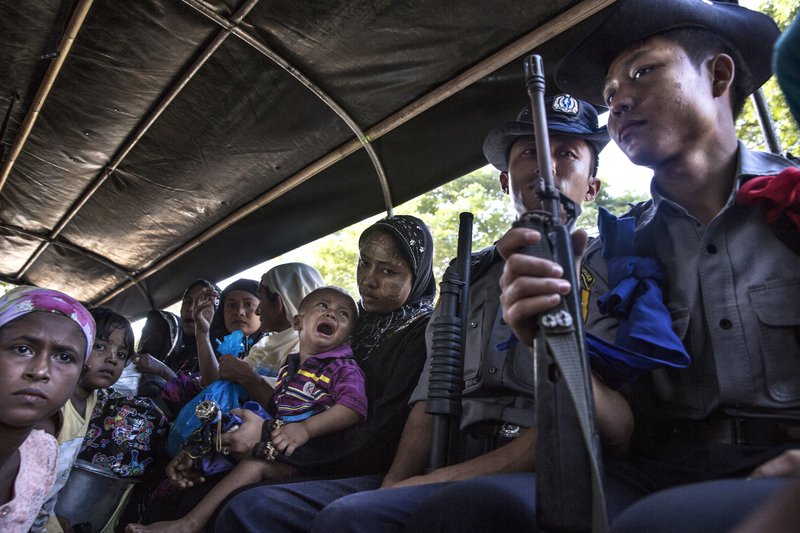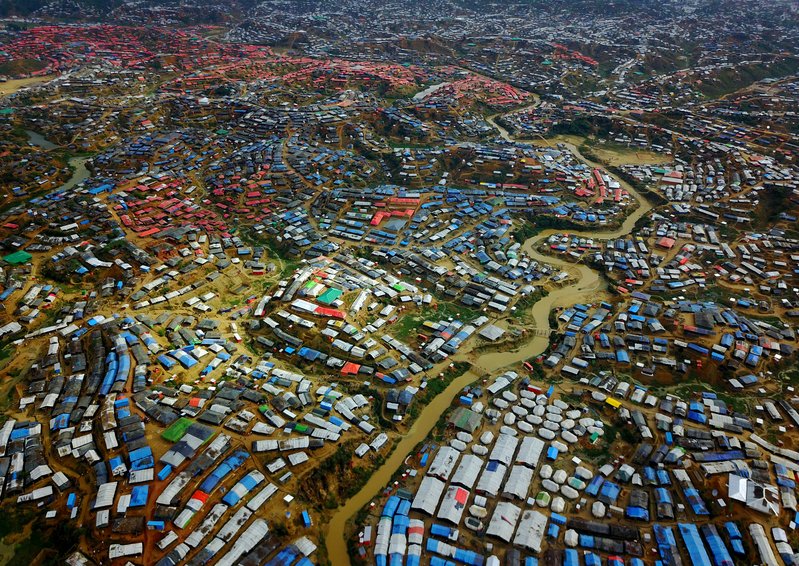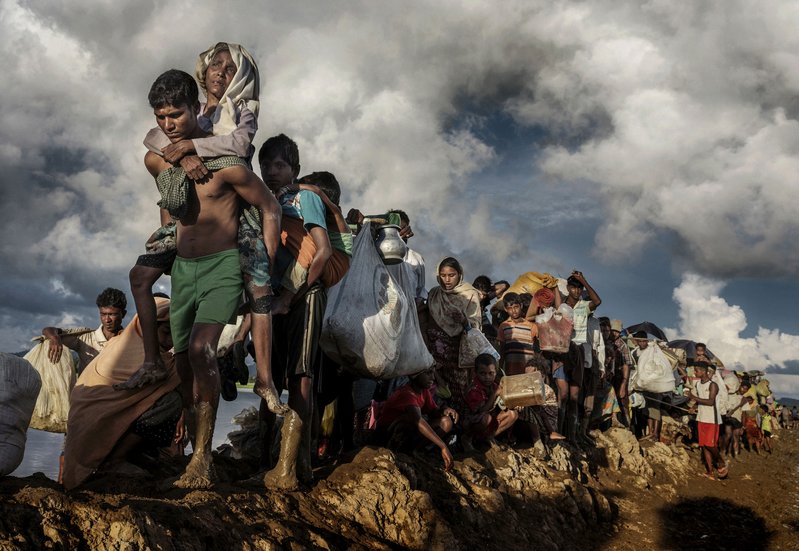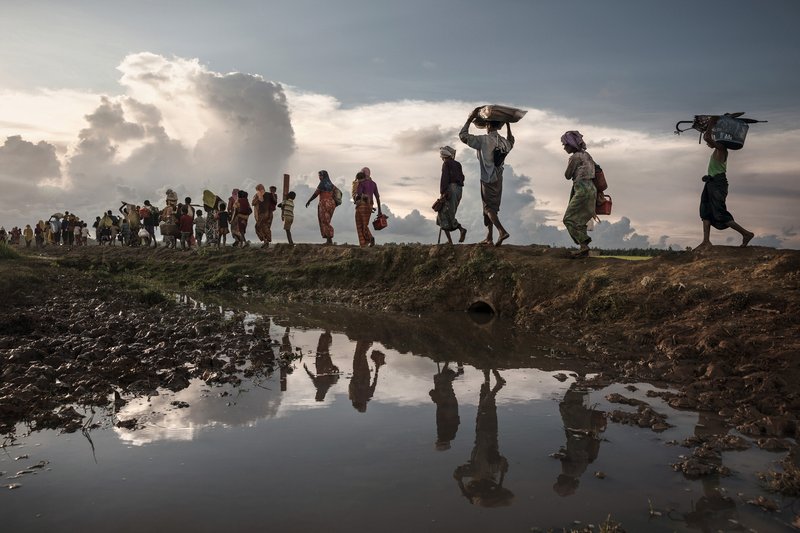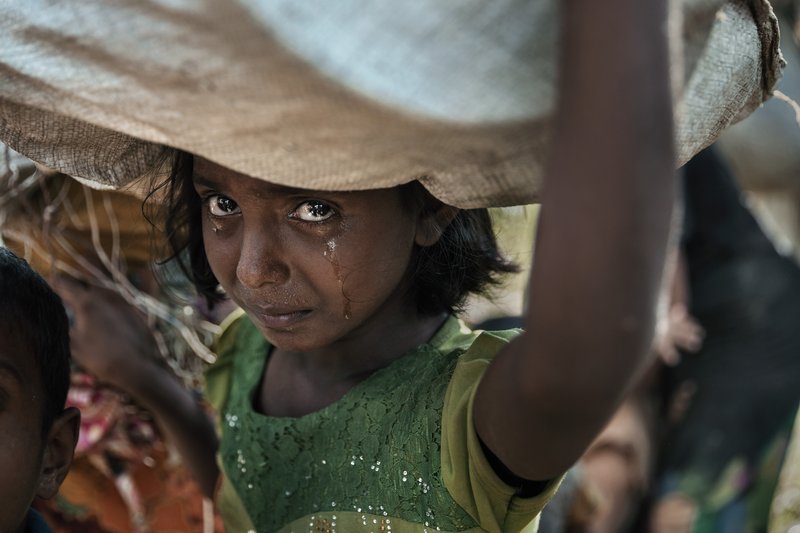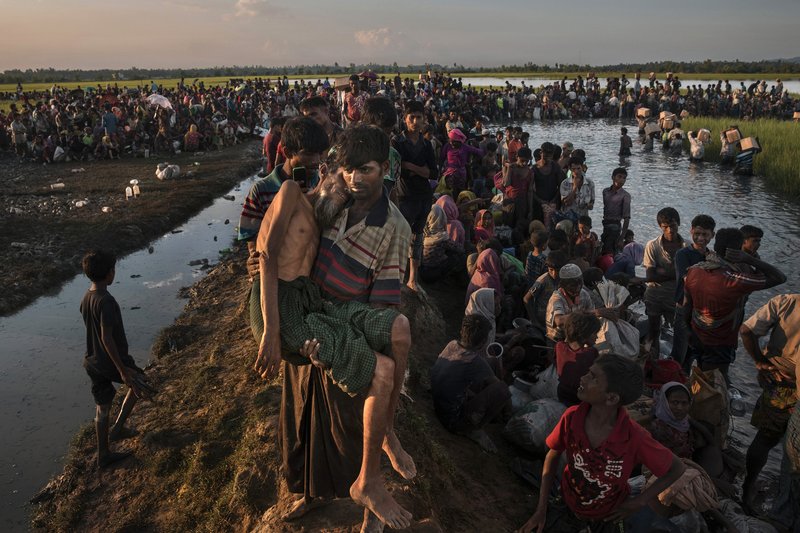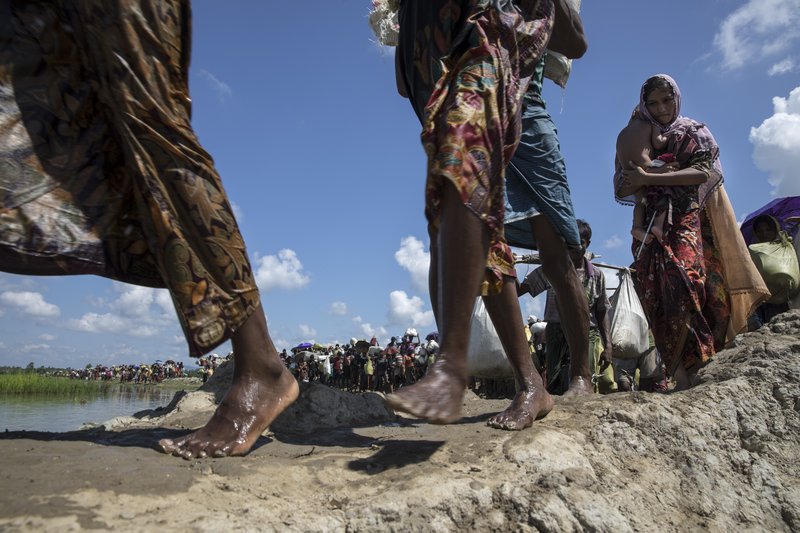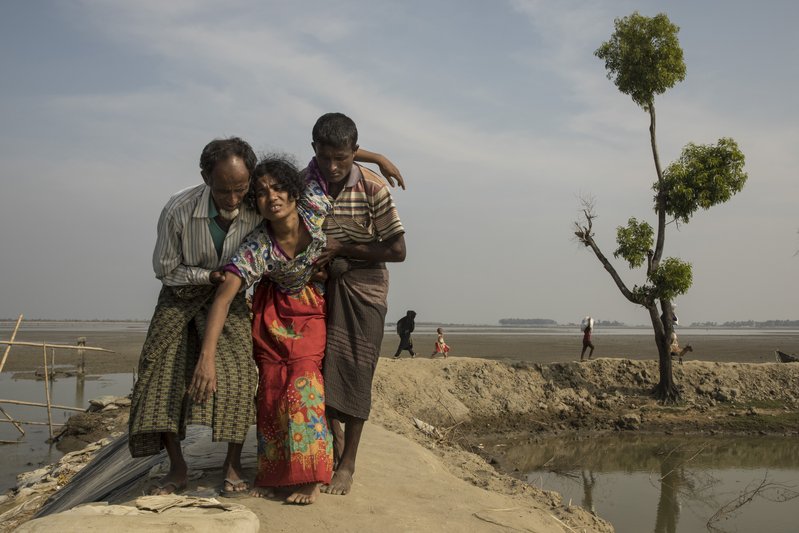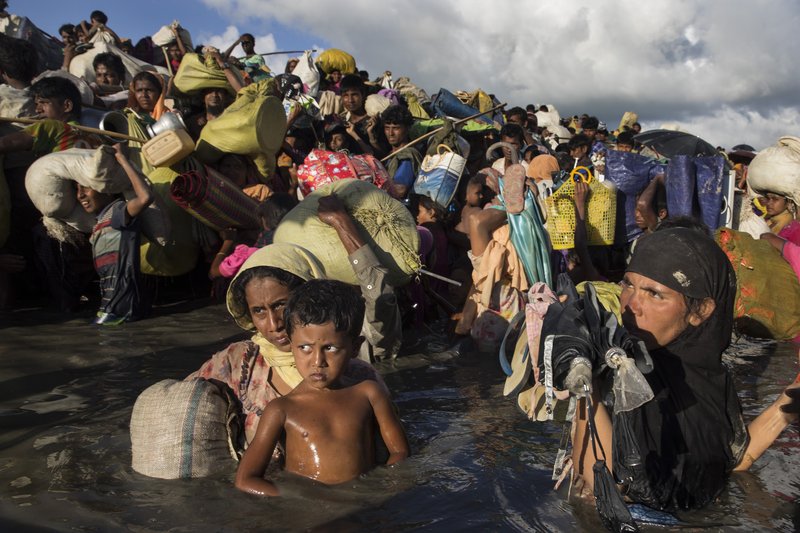Rohingya
Rohingya from Aung Mingalar are escorted by Burmese police in a truck heading back to their remote community after being allowed to shop at the IDP camp market. There are no facilities in the Aung Mingalar area so many depend on this weekly trip.
For years, Buddhist majority Myanmar has struggled to deal with a deeply rooted hatred towards the Rohingya in western Rakhine state. The Muslim ethnic minority were always considered illegal immigrants from Bangladesh and denied the rights of citizenship.
According to Human Rights Watch, "the Rohingya have faced decades of discrimination and repression under successive Myanmar authorities. Effectively denied citizenship under the 1982 Citizenship Law, they are one of the largest stateless populations in the world.
"About one million Rohingya are currently living in overcrowded camps in Bangladesh, most of whom fled Myanmar in 2017 to escape the military’s crimes against humanity and possible genocide.
"The estimated 600,000 Rohingya who remain in Rakhine State are subject to persecution and violence, confined to camps and villages without freedom of movement, and cut off from access to adequate food, health care, education, and livelihoods."

